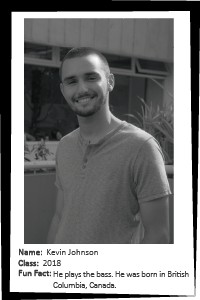Meet the Staff: Professor Ilse Bussing Talks About her Academic Life
By G. Porras.
 Having a great love for
teaching and research, Professor Ilse Bussing has delighted hundreds of English
majors with her humbleness and professionalism since 2012 when she first began
teaching at Letras School. In an
interview with The Cult News, she shares the various academic challenges she
has gone through in her life.
Having a great love for
teaching and research, Professor Ilse Bussing has delighted hundreds of English
majors with her humbleness and professionalism since 2012 when she first began
teaching at Letras School. In an
interview with The Cult News, she shares the various academic challenges she
has gone through in her life.After discarding the idea of studying psychology and realizing that she had a particular skill for literature courses when she was in high school, Ilse decides to major a B.A. in Compared Literature at William and Mary University in Virginia. This, she considers, was her first major challenge which she overcame thanks to her dedication. “I had to write and write and write and read and read and read like a maniac. I was basically writing an essay a week for my courses and reading like a hundred pages a day,” Ilse remembers. For her, this experience was both challenging and unique as she was immersed in a completely different culture, in an "all-brick campus." The many hours spent reading, writing and looking for books at the library were not over as Ilse decided to pursue a Masters in Latin-American Literature, at the University of Costa Rica, a place that has been her home since she was a child.
 Certainly, the fact that she grew up in front of Medicina’s school and that her
father was aprofessor in Biology and a researcher at the U.C.R influenced
Professor Bussing enormously, who shares her father´s passion for research.
This discipline, together with her unquestionable love for Gothic Literature
drew her to undergo a 3-year research project at the University of Edinburgh in
Scotland. She instantly fell in love with the campus and the wonderful
libraries. Her thesis under the name of The
Haunted House in Mid-to-Late Victorian Gothic Fiction was part of her
research work to earn a Ph.D. in Gothic Literature.
Certainly, the fact that she grew up in front of Medicina’s school and that her
father was aprofessor in Biology and a researcher at the U.C.R influenced
Professor Bussing enormously, who shares her father´s passion for research.
This discipline, together with her unquestionable love for Gothic Literature
drew her to undergo a 3-year research project at the University of Edinburgh in
Scotland. She instantly fell in love with the campus and the wonderful
libraries. Her thesis under the name of The
Haunted House in Mid-to-Late Victorian Gothic Fiction was part of her
research work to earn a Ph.D. in Gothic Literature.
Naturally,
her academic achievements did not happen by chance. “There are no free lunches
as my father would say,” she says. Nowadays, due to her hard work, discipline,
and persistence, Ilse inspires her students with her outstanding classes and
publishes academic articles in different journals in the United Kingdom.
Ilse has had a long and rewarding academic
journey; therefore, her advice for English majors is “to be very hardworking
and very persistent,” as these are the attitudes that lead to success.



